
THREAD: western defense
LifeLine™ Media threads use our sophisticated algorithms to construct a thread around any topic you want, providing you with a detailed timeline, analysis, and related articles.
News Timeline


EUROPEAN Allies RALLY to Defend Ukraine as Trump Era Looms
— London, Paris, and Warsaw are forming a core group to support Ukraine against Russia, anticipating changes in U.S. policy under a possible Trump presidency. Donald Trump hasn’t detailed his plans for ending the conflict but has mentioned options like land swaps or demilitarized zones. These strategies clash with Ukraine’s goal of total victory over Russia.
British Prime Minister Sir Keir Starmer met French President Emmanuel Macron in Paris to discuss defense matters and support for Ukraine. They want outgoing U.S. President Joe Biden to allow Ukraine’s use of long-range missiles against Russia before any Trump policy shift. The U.S., however, worries this could escalate tensions with Moscow significantly.
A UK government source stressed the urgency of maximizing efforts before Trump’s potential presidency begins on January 20th. Starmer and Macron aim to strengthen Ukraine’s position as winter nears and after Trump’s re-election announcement days ago, despite financial challenges faced by both the UK and France amid budgetary issues.
Poland, led by Prime Minister Donald Tusks, is also increasing its role in this emerging anti-Trump alliance within Europe. Meetings between Polish leaders and European counterparts are planned to involve NATO members from Scandinavia as well.

AUSTIN’S Final Ukraine Visit: What It Means for America’S Future
— Secretary of Defense Lloyd Austin made his fourth and likely final trip to Ukraine before the upcoming U.S. election. He praised Ukraine’s resilience against Russian President Vladimir Putin’s prolonged assault but cautioned that there is “no silver bullet” to end the conflict. Austin emphasized the importance of Ukraine’s strategic military efforts and international support in repelling Russian aggression.
Austin highlighted the significance of U.S. and allied support, stating that Ukraine’s security impacts both European and American interests. Concerns are rising as the U.S. presidential election approaches, with uncertainty over future American support if Donald Trump returns to office.
In a demonstration of continued commitment, Austin announced a new $400 million arms package for Ukraine. He argued that supporting Kyiv is more cost-effective than allowing it to fall under Putin’s control, reinforcing America’s stance on international security cooperation.
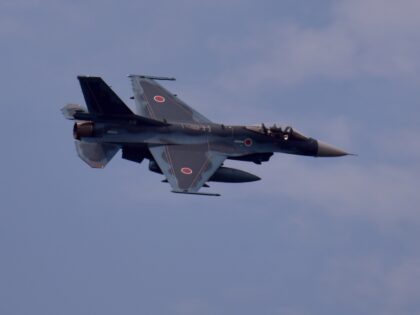
NEW FIGHTER JET Program Aims to Counter China and Russia Threats
— Japan, the U.K., and Italy are teaming up to create a new combat aircraft by 2035 under the Global Combat Air Program (GCAP). This project aims to strengthen defense against threats from China, Russia, and North Korea. The advanced stealth fighter will replace Japan’s F-2s and Eurofighter Typhoons.
Japanese Defense Minister Gen Nakatani announced the creation of the GCAP International Government Organization (GIGO) by year’s end. GIGO will manage aircraft development from its base in the U.K., led by a Japanese official. This announcement came after a meeting with his U.K. and Italian counterparts at the Group of Seven defense ministers meeting in Naples, Italy.
Private companies like Japan’s Mitsubishi Heavy Industries, Britain’s BAE Systems PLC, and Italy’s Leonardo are part of this effort. Nakatani confirmed that GIGO is on track to sign its first contract next year despite leadership changes in Japan and the U.K. This partnership highlights a commitment to boosting military capabilities amid global security concerns.
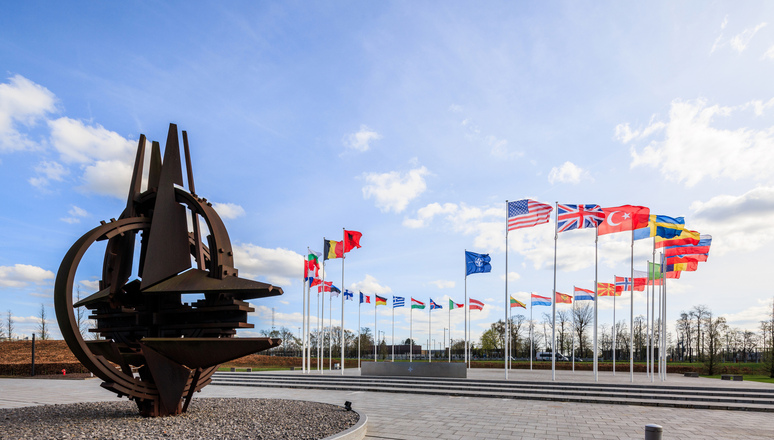
NATO’S BIG Move: Ukraine’s UNSTOPPABLE Path to Membership
— NATO’s 32 members declared Ukraine on an “irreversible” path to membership in the alliance. This announcement came during their summit in Washington, emphasizing a commitment to Ukraine’s defense.
The U.S., Netherlands, and Denmark announced that Ukrainian pilots would receive NATO-provided F-16s by summer. President Zelenskyy expressed gratitude for the support amid ongoing deadly strikes from Russia.
NATO also committed to long-term security assistance and established a new center to ensure reliable arms and training for Ukraine. However, these commitments fall short of what Ukraine says it needs to defeat Russia.
The final statement labeled China as a “decisive enabler” of Russia’s war against Ukraine. NATO reaffirmed its support for Ukraine’s democratic, economic, and security reforms needed for full membership in the alliance.

NATO SUMMIT In DC: Biden’s RE-Election Doubts Shake Ukraine Support
— World leaders are heading to Washington, D.C., this week for a historic NATO summit as uncertainty rises over continued U.S. support for Ukraine. The summit marks the 75th anniversary of the alliance’s founding and comes amid skepticism about President Biden’s re-election chances and their impact on Ukraine’s war with Russia.
Key issues on the agenda include Ukraine’s success in its war with Russia, its future within NATO, and how the alliance plans to bolster collective defense. The U.S. has been a major supporter of Ukraine, providing significant aid, sparking debate over whether this level of support can continue under a different presidency.
Former President Donald Trump has not clarified what U.S. involvement with NATO would look like if he wins a second term, leaving questions about future American support for the alliance and Ukraine unanswered. Experts believe Trump is unlikely to pull out of NATO altogether but note that the alliance is taking steps to safeguard its support for Ukraine should Washington reduce its involvement.

UKRAINE DEFENDS Against Russian Onslaught in Kharkiv
— Ukrainian troops fought off a Russian military attack in Kharkiv. President Volodymyr Zelenskyy described the conflict as intense, with Russia using missiles, drones, and artillery. The White House stands firmly behind Ukraine’s ability to endure these attacks.
Russian military sources said they aimed at Ukrainian ammo depots and troops. Yet, Kharkiv’s regional leader, Oleh Syniehubov, confirmed that his forces kept control of all territory. He noted that Russian scouts tried to enter Ukraine but were pushed back successfully.
The European Union is thinking about using money from frozen Russian assets to help Ukraine during this tough time. This plan would strengthen Ukrainian defenses and aid their recovery as the situation worsens in the area.
This move by the EU could provide crucial support for Ukraine while also putting additional pressure on Russia by targeting its financial resources.
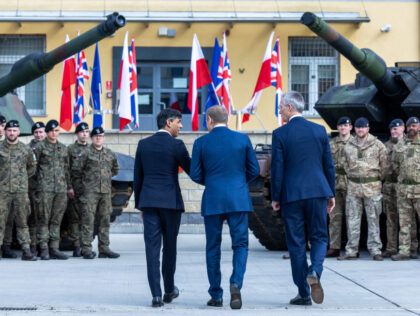
UK to RAMP UP Defense Spending: A Bold Call for NATO Unity
— During a military visit in Poland, British Prime Minister Rishi Sunak announced a significant increase in the UK’s defense budget. By 2030, spending is set to rise from just over 2% of GDP to 2.5%. Sunak described this boost as essential in what he termed “the most dangerous global climate since the Cold War,” calling it a "generational investment.
The next day, UK leaders pressed other NATO members to also raise their defense budgets. This push aligns with former U.S. President Donald Trump’s long-standing demand that NATO countries up their contributions for collective security. UK Defense Minister Grant Shapps voiced strong support for this initiative at an upcoming NATO summit in Washington DC.
Some critics question whether many nations will achieve these elevated spending targets without an actual attack on the alliance. Nonetheless, NATO has recognized that Trump’s firm stance on member contributions has significantly bolstered the alliance’s strength and capabilities.
At a Warsaw press conference with NATO Secretary General Jens Stoltenberg, Sunak discussed his commitment to supporting Ukraine and enhancing military cooperation within the alliance. This strategy represents a major policy shift aimed at strengthening Western defenses against escalating global threats.
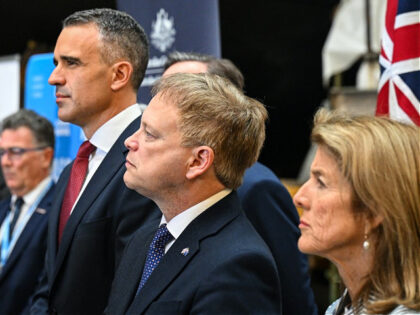
JAPAN Strengthens WESTERN Ties: Set to Boost Aukus Alliance
— During a notable visit to Washington, Japanese Prime Minister Kishida Fumio hinted at Japan’s upcoming role in the AUKUS alliance. Reports suggest Japan is “cleared to join,” marking a significant step in defense collaborations between Japan and Western powers.
The AUKUS alliance aims to enhance Australia’s submarine capabilities and is now eyeing Japan for its advanced technology program. This includes electronic warfare and AI development, with UK Defense Secretary Grant Shapps hinting at high-tech cooperation with Japan.
Japan’s entry into the alliance is poised to advance military technologies like hypersonic missiles and cyber defense systems. Prime Minister Kishida emphasized the importance of U.S.-Japan collaboration on emerging technologies during his Congress address, highlighting its role in global security dynamics.
This expansion signifies a major leap in uniting Western defense efforts against global threats, promoting peace and stability through technological advancement and strategic cooperation among these nations.

DEFENSE BILL Slashed: Allies Fear for US Reliability
— The House gave the green light to a $1.2 trillion defense bill on Friday, which includes crucial aid for Ukraine. However, the significantly trimmed budget and prolonged delays have left allies like Lithuania doubting the U.S.'s reliability.
The conflict in Ukraine, instigated by Russia, has been ongoing for over two years. While American backing for Kyiv has slightly lessened, European allies stand firm. Gabrielius Landsbergis, Lithuanian Foreign Minister, voiced concerns over Ukraine’s capacity to hold its front line based on the quantity of ammunition and equipment received.
Landsbergis also expressed apprehension about Russia’s potential future actions if Putin continues without restraint. He portrayed Russia as a “massive, aggressive empire with a bloodthirsty nature” that inspires other dictators globally.
This is an incredibly unsettling time," concluded Landsbergis underlining the worldwide repercussions of Russia’s unchecked aggression.

UK and France’s HIDDEN Soldiers in Ukraine: Germany ACCIDENTALLY Spills the Beans
— In a surprising turn of events, German Chancellor Olaf Scholz unintentionally disclosed that both the UK and France have troops stationed in Ukraine. This revelation came about as he defended his decision not to provide Ukraine with Taurus cruise missiles. According to Scholz, these troops are supervising the deployment of their nations’ long-range missiles on Ukrainian soil. His comments hint at a fear of escalating tensions with Russia.
Following Scholz’s unexpected revelation, a leaked audio recording surfaced featuring top-ranking German military officials confirming the active involvement of British soldiers in Ukraine. The recording suggests that British forces are assisting Ukrainians in targeting and firing UK-provided missiles at specific Russian targets. While the German Defence Ministry has verified the authenticity of this recording, it has left some questions unanswered regarding potential editing prior to its release by Russia.
Despite not disputing the legitimacy of this leaked audio, Berlin has tried to downplay it as Russian “disinformation”. Miguel Berger, Germany’s ambassador to Britain, described it as “a Russian hybrid attack” designed to destabilize Western allies. Berger asserted there is “no need for an apology” towards either UK or France.
This unforeseen disclosure raises questions about Western involvement in Ukraine beyond diplomatic protection and underscores Germany’s prudent approach towards direct military engagement with Russia.

CONGRESS Holds the Key: The FUTURE of the Russia-Ukraine War in Year Three
— As we enter the third year of the Russia-Ukraine conflict, experts tell Fox News Digital that its future hangs on Congress. Will they overcome their hesitation to provide ongoing support? Kenneth J Braithwaite, a former Navy secretary under Trump and ex-ambassador to Norway, underscores America’s alliances’ crucial role in this worldwide challenge.
Communism is alive and well," warns Braithwaite. He emphasizes that as Russia battles Europe and China seeks greater global sway, Americans must prioritize self-defense against these threats. This protection comes through partnerships and unified resistance against authoritarian dangers.
Ukraine’s second invasion year witnessed significant turmoil with Russia initially facing major defeats when Wagner forces defected. However, Russian President Vladimir Putin managed to mount a successful counterattack against Ukraine’s counteroffensive. In a daring move, Putin rejected renewing a U.N.-backed deal for grain shipments via the Black Sea and instead launched an attack on Ukraine.
In response, Ukraine unleashed an impressive naval operation that obliterated twelve Russian vessels in the Black Sea — a strategic victory for Kyiv that enabled them to create their own grain corridor by driving out the Russian fleet from

Is Biden’s DRONE ATTACK Response Just a ‘Checklist’ Strategy? Waltz Slams Administration
— In an exclusive statement to Breitbart News, Rep. Mike Waltz openly criticized the Biden administration’s handling of a recent drone attack in Jordan. This devastating event led to the loss of three American lives and left 25 others injured. Waltz, who holds positions on several House committees and has a background as a Special Forces commander, voiced his concerns about Biden’s strategy.
Waltz accused the administration of prematurely revealing its intended response to Iran, thus eliminating any potential element of surprise. His comments were in reference to Biden’s announcement on Tuesday where he assured that he does not seek a broader conflict in the Middle East. According to Waltz, simply telling Iran “don’t” is not an effective strategy.
The Florida congressman suggested a three-pronged approach: targeting IRGC operatives instead of just proxies, enforcing sanctions to cut off Iran’s funding sources, and supporting Iranian citizens demanding change. He expressed concern that Biden is merely ticking off boxes with ineffective strikes that target warehouses rather than directly punishing the Iranian regime.
Waltz called for a return to Trump’s policy of maximum pressure on Iran’s economy coupled with robust military action. He reminded readers that under President Trump’s leadership, attacks ceased when Iran-backed terrorists dared kill an American.
PROJECT DYNAMO Gears Up for Heroic Rescues in Taiwan and China Amid Rising Tensions
— Project Dynamo, a nonprofit dedicated to saving endangered Americans overseas, is gearing up for possible rescue missions in Taiwan and mainland China. The move comes as worries intensify over Beijing’s military upgrades, nuclear growth, and aggressive stance towards Taiwan. China regards Taiwan as a rebellious province and has made threats of forceful annexation.
Established by former U.S. military and intelligence officers in August 2021, Project Dynamo initially concentrated on rescuing Americans stranded in Afghanistan after the U.S. military pullout. Since then, the organization has broadened its reach globally to assist Americans who were not part of the U.S. military’s rescue plan.
Bryan Stern, a combat veteran and founder of Project Dynamo conveyed that while it’s unclear if they’ll conduct rescue operations in both mainland China and Taiwan, they are ready for any scenario. Stern stressed that there are more Americans living in China than Taiwan, making their safety just as crucial.
Project Dynamo has named potential rescues in Taiwan and China “Marco Polo”. Operating solely on donations without government support, the group has saved over 6,000 people from various worldwide crises within less than three years of operation.
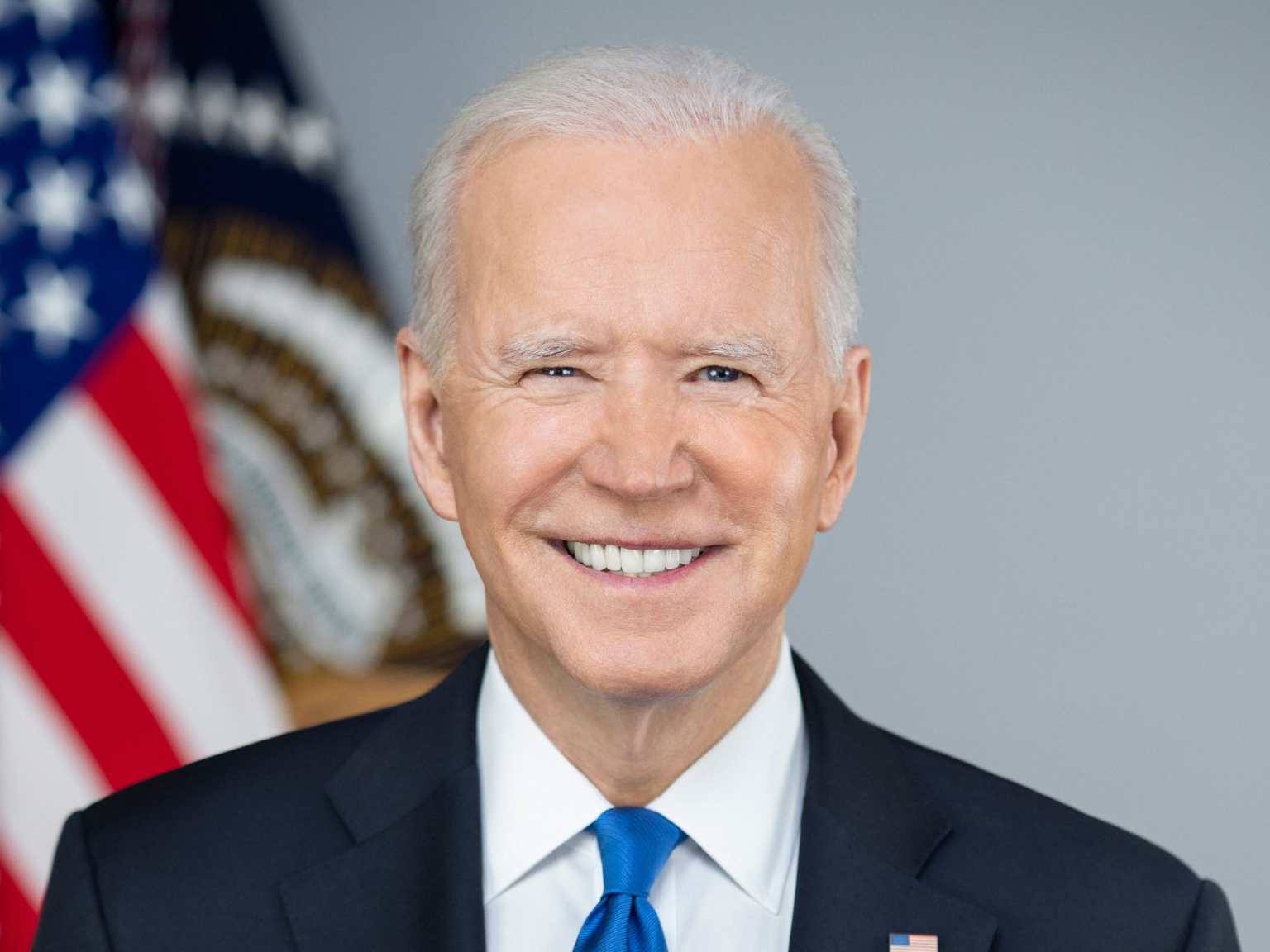
Biden INKS $8863 Billion Defense Act, SLAMS Congressional Oversight
— President Joe Biden has put his signature on the National Defense Authorization Act, green-lighting a hefty $886.3 billion in spending. This act aims to equip our military with the means to deter future conflicts and provide support for service members and their families.
Despite giving his approval, Biden raised eyebrows with concerns over certain provisions. He argues these clauses excessively limit executive power in national security matters by calling for more congressional oversight.
According to Biden, these provisions could force the disclosure of highly sensitive classified information to Congress. There’s a risk this could expose crucial intelligence sources or military operational plans.
The extensive bill, which covers over 3,000 pages, sets out a policy agenda for the Department of Defense and U.S military but doesn’t earmark funding for specific initiatives or operations. Additionally, Biden voiced his ongoing concern about clauses barring Guantanamo Bay detainees from setting foot on U.S soil.

NEW ZEALAND’S Bold Move: Eying Aukus Partnership for Stronger Defense Ties with Australia
— New Zealand’s Prime Minister, Christopher Luxon, is contemplating a strategic move. He’s considering joining the AUKUS partnership to strengthen defense ties with Australia. The AUKUS agreement is a tripartite pact between Australia, the United Kingdom, and the United States. It aims to counteract China’s expanding military influence.
Since his election in October, Luxon made his first overseas visit to Australia. There he and Australian Prime Minister Anthony Albanese agreed on aligning their defense strategies. To coordinate these efforts further, their foreign ministers are set to meet in 2024.
Luxon has expressed particular interest in “AUKUS Pillar 2”. This pillar emphasizes developing and sharing advanced military capabilities like artificial intelligence and electronic warfare systems. Luxon believes that this partnership could be a catalyst for stability and peace within the region.
The U.S. and Britain have already committed to providing Australia with U.S.-powered nuclear submarines under the AUKUS agreement. If New Zealand joins this alliance, it could potentially fortify this tripartite pact against China’s growing regional power.
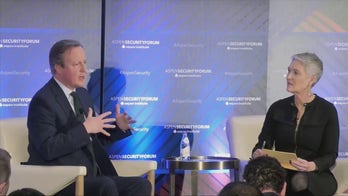
UK’S Cameron STANDS FIRM for Ukraine, Dismantles Doubts Over War Effort
— Former U.K. Prime Minister David Cameron has robustly defended Ukraine’s stance against Russia. During a conversation with Jennifer Griffin of Fox News at the Aspen Security Forum, he underscored that not only is Ukraine’s war effort holding strong, but it also positively impacts the U.S. economy.
Cameron countered Republican skepticism about backing Ukraine. He argued that financial aid sent to the country is being utilized efficiently and effectively. As proof, he highlighted Ukraine’s success in neutralizing a significant portion of Russia’s helicopter fleet and sinking its Black Sea naval vessels.
He emphasized the necessity of backing a sovereign nation in its self-defense without overstepping into direct conflict with Russian forces – what he referred to as the “red line” involving NATO soldiers. Furthermore, Cameron refuted allegations that Ukraine’s counteroffensive has been unsuccessful in thwarting Russia’s invasion.
His comments emerge amidst escalating debates over U.S support for Ukraine and doubts raised by some Republicans concerning the effectiveness of aid given to this Eastern European nation.

DEFENDING Our Skies: Innovative EYEWEAR Shields Aircrew from Surge in Laser Attacks
— The Human Systems Division of the Air Force Life Cycle Management Center is on a mission. They’re developing state-of-the-art protective eyewear for aircrew operators, a response to the alarming rise in laser pointer incidents. Based at Wright-Patterson Air Force Base in Ohio, the division is focusing on the Block 3 product line. This new gear will offer both laser and ballistic protection — a first in its field.
Capt. Pete Coats, who leads the division’s Aircrew Laser Eye Protection Program, stressed how vital eye health is for pilots. He warned that being hit by a laser without adequate protection could endanger not just safe flying and landing but also jeopardize a pilot’s career itself. The innovative eyewear will come in eight different models, each tailored to specific mission needs and other key factors.
Mark Beer, deputy program manager of the same program, clarified that aircrews engaged in low-speed missions or hovering would gain most from this dual ballistic and laser protection feature. However, those piloting fighter aircraft or high-altitude bombers might not need as much ballistic coverage. In just this year alone, pilots have reported nearly 9,500 laser strikes to the Federal Aviation

USS MASON Bravely Defends Against Pirate Attack and Dodges Yemeni Missiles: A New Threat on the Horizon?
— In a daring act of valor, the USS Mason responded to a distress call from commercial vessel M/V Central Park. The Mason successfully defended against an attack by five armed pirates. After attempting to flee, the pirates were pursued and apprehended by the Mason’s crew. The Pentagon has suggested that these pirates are likely of Somali origin, not Houthi.
As the rescue operation was winding down, two ballistic missiles were launched from areas in Yemen under Houthi control. These missiles landed approximately 10 nautical miles away from both the USS Mason and M/V Central Park. Fortunately, no damage or injuries have been reported.
This missile attack could signify an escalation of aggression by Iran-backed forces towards U.S. assets in this region. While there has been a recent increase in drone and missile attacks on U.S bases and troops stationed in Iraq and Syria by Iran-backed groups, this marks a new development with ballistic missiles being directed at U.S ships.
The vessel under attack, M/V Central Park flies under Liberia’s flag but is managed by an Israeli firm owned by Israel’s Ofer

BLACKBURN BLASTS Biden: The Deterrence Disaster and the Fight to Regain Trust
— Senator Blackburn has recently taken President Biden to task over his approach to national security. She stressed the urgency of an “effective kinetic response” in order to restore deterrence, which she argues has been undermined during Biden’s tenure.
Blackburn highlighted that discontent within the Pentagon stems from the poorly executed withdrawal from Afghanistan. This incident sparked widespread skepticism towards the Biden administration among military ranks.
She further contended that even when faced with alternative strategies, President Biden stubbornly stuck with his flawed plan. He then hailed it as a success, contradicting the military’s evaluation.
In Blackburn’s view, restoring deterrence and executing an effective kinetic response are vital steps towards regaining credibility and trust within our nation’s defense department.
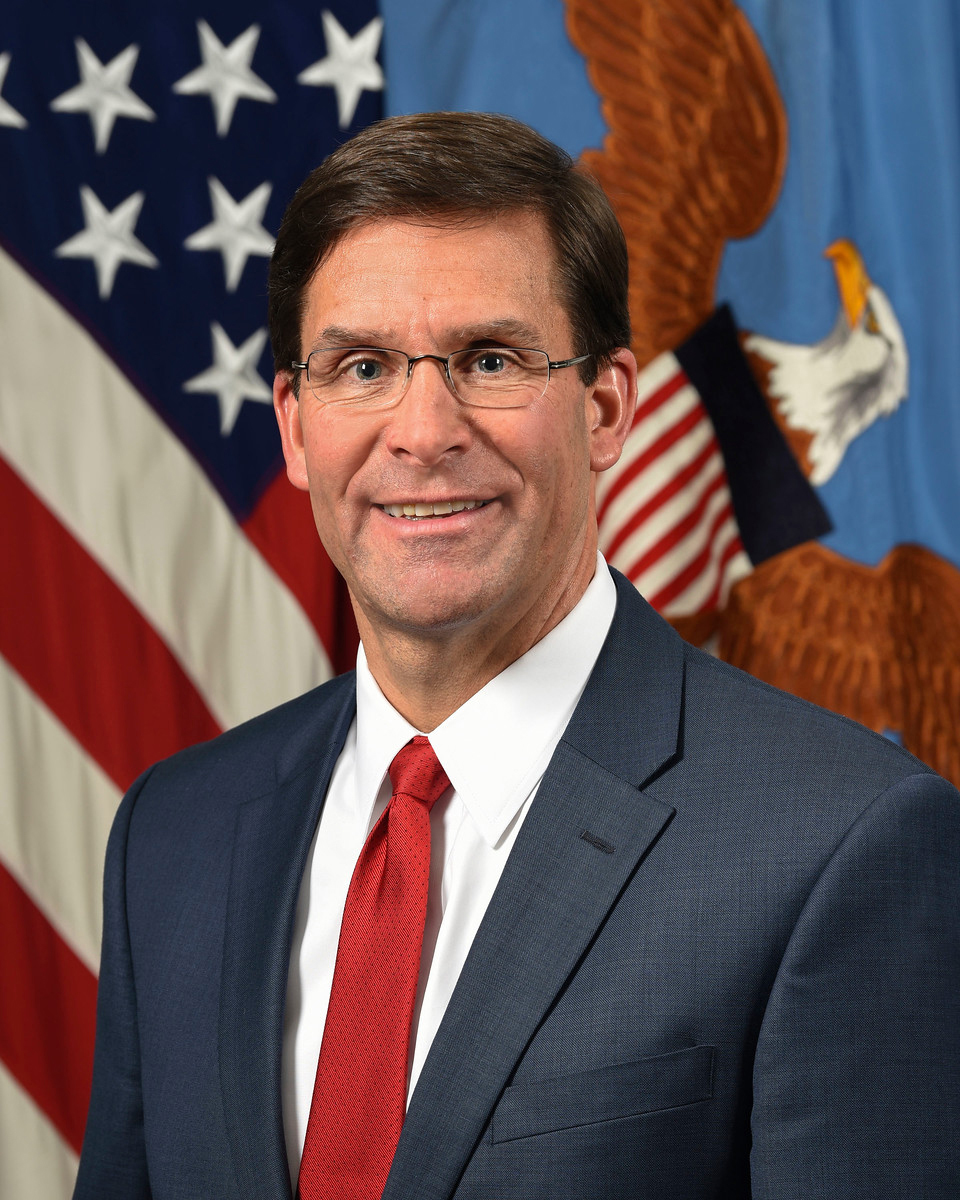
ESPER SLAMS US Response to Iranian Attacks: Is Our Military Strong Enough?
— Former Defense Secretary Mark Esper has openly criticized the U.S. military’s handling of attacks by Iranian proxies on American forces in Syria and Iraq. He considers the response insufficient, despite being targeted over 60 times in just a month by these proxies. These forces are stationed in the region with a mission to ensure ISIS’s lasting defeat, and approximately 60 troops have been injured as a result of these relentless attacks.
Despite launching three sets of airstrikes against facilities used by these proxies, their aggressive actions persist. “Our response hasn’t been forceful or frequent enough... there’s no deterrence if they strike back immediately after we strike them,” Esper shared his concerns with the Washington Examiner.
Esper advocates for more strikes and expanding targets beyond just ammunition and weapons facilities. However, Pentagon deputy spokeswoman Sabrina Singh stands by their actions, claiming that U.S.'s attacks have significantly weakened these militia groups’ access to weapons.
In recent weeks, U.S troops targeted a training facility and safe house last Sunday, struck a weapons storage facility on Nov 8th, and hit another weapons storage facility along with an ammunition storage area in Syria on Oct 26th.

Video
ISRAEL STRIKES Hezbollah: Lebanon Rocked By Explosions
— Israel’s defense minister, Yoav Gallant, has announced a “new phase” of the war against Hezbollah militants in Lebanon. Gallant praised the army and security agencies for their impressive results and emphasized the need for courage as military resources shift northward.
Lebanon is reeling from mysterious explosions targeting electronic devices like walkie-talkies and solar equipment. These incidents follow previous pager explosions that killed nine people and injured 300, heightening fear among the Lebanese population.
Explosions disrupted a funeral in Beirut for Hezbollah members killed by earlier pager blasts, causing further damage in Sidon. The strategy appears aimed at destabilizing Hezbollah’s communication infrastructure and creating chaos within its ranks.
The situation remains tense with potential for broader regional conflict growing. As both sides prepare for intensified warfare, the humanitarian impact on civilians looms large, highlighting the urgent need for diplomatic intervention to prevent further bloodshed.
More Videos
Invalid Query
The keyword entered was invalid, or we couldn't gather enough relevant information to construct a thread. Try checking the spelling or entering a broader search term. Often simple one-word terms are enough for our algorithms to build a detailed thread on the topic. Longer multi-word terms will refine the search but create a narrower information thread.
